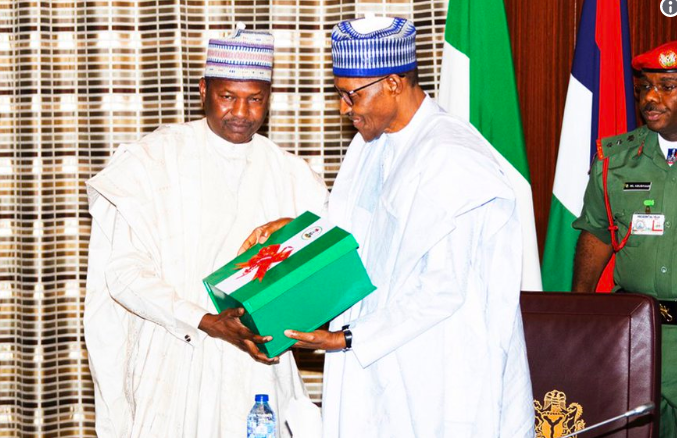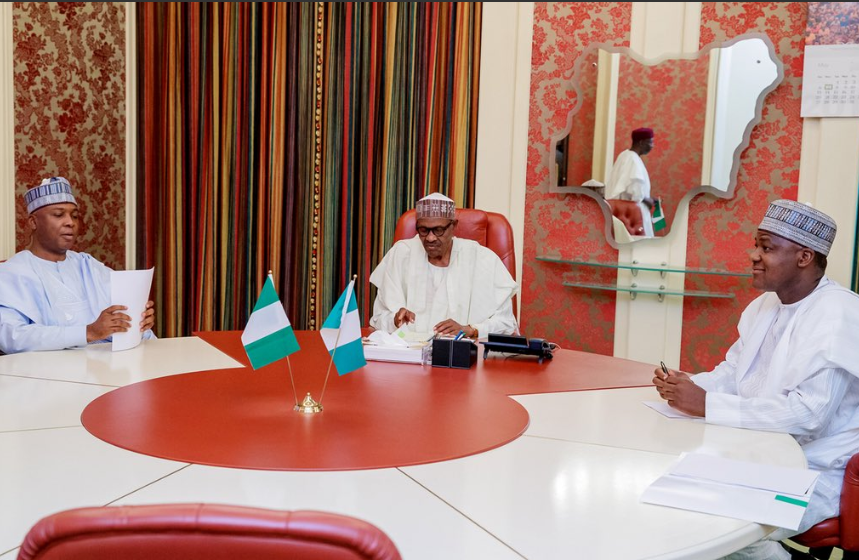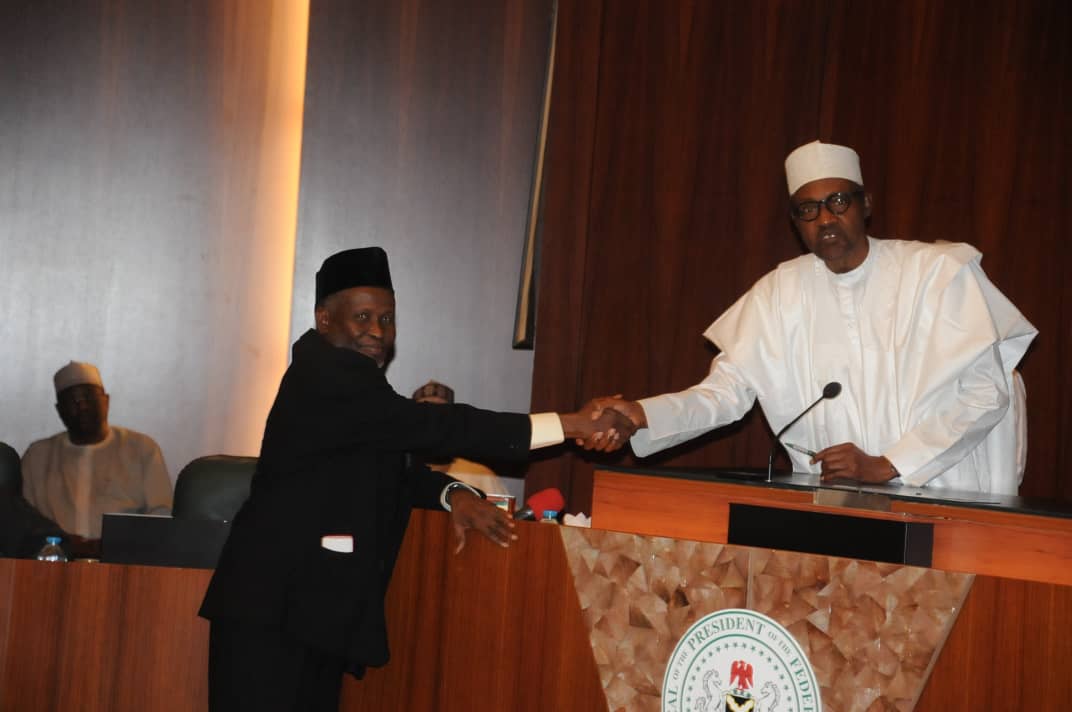By Godwin Etakibuebu
It is for the purpose of checks and balances that developers of democracy, from origin, enshrined the three concepts or layers into government. Without the three layers; Executive, Legislature and Judiciary, conceptualised by the founding fathers, practice of democracy would have been so frustrating.
If the stages of designing policy into prosecution of same, to the point of interpretation were to be concentrated on one hand, the end result would have remained continuous creation of despotic and that would have enlarge the territorial infamy of anarchy.
The role-play of the three layers, which is to ensure checkmating one another, has actually redefined the beauty of democracy and makes it more attractive. Upholding the inherent benefits of this system however remains, as long as each of the three layers appreciates its autonomous identity. This is not say that all democratic system of governments over the ages have paid strict allegiance to practice of separation of power.
No, there have been different approaches from one clime to another. The difference however has more to do with individual political leaders’ greed in acquisition of absolutism in power.
Dictatorship occurs when one of the three, in most cases the Executive, plays the role of “first among equals” and thereby subduing the remaining two – Legislature and the Judiciary. Whenever the theory of separation of power is compromised, the major losers of the game in such environment are the people – the citizenry.
This is due to the fact that for the rights of citizens to be fully preserved as per the dictate of constitutional guarantee, there must be existence of the three organs; executive, legislative and judiciary – all subjective to constitutional authority. These three must only just be in existence, the vibrancy and resilience of the legislature and judiciary above the executive must be distinctly alive. Let us look at it this way.
A weaker Legislature will soon become an annex or appendix to the Executive while a docile Judiciary will always be too intimidated to give accurate constitutional interpretation the way it should be. This stands the fact out that at the place of melodrama of enslavement’s absurdity, the Executive arrive the pinnacle of absolute power without hindrance. And, it is an acceptable idiom that absolute power corrupts absolutely.
Nigeria, unfortunately, is at that stage already. We have in place a Judiciary that has been adequately cowed, thoroughly intimidated and resourcefully disgraced. The Judiciary long walk to opprobrium did not just start today. It came through a full process, with some judges [including a few justices of the Supreme Court]’s houses raided at midnight by members of the Directorate of State Security, without legal instrument, hoarded them [the judges] to “questioning chambers” [looking more of detentions places] before moving them to courts, on corruption charges.
This was followed up with the removal from office the Chief Justice of Nigeria without due process. In removing the CJN from office, the powers and functionality, constitutionally invested on both the Nigeria Judicial Council [NJC] and the Nigerian Senate, as regarding appointment and removal of the CJN, were ousted by the President [Executive].
Having concluded that phase without ado, the Executive turned to the Legislature for “decoration”. The broken, shattered and discarded legislative leadership of Asiwaju Ahmed Bola Tinubu, in 2015, was re-assembled from debris of ruins, and imposed same as leaders on the National Assembly, having secured all types of promissory notes of absolute [including blind] loyalty from them. At the Senate level, Senator Ahmad Lawan, would ensure “obedience into eternity”, while at the House of Representative, Honourable Femi Gbajabiamila “promised leading without raising objection forever”.
The first person to declare the totality of loyalty without objection to the Executive is the Senate President. He made the “commitment” when Professor Itsy Sagay [SAN] paid him visit in his office at the National Assembly. Prof Sagay had requested the Senate President to ensure confirmation of the EFCC Chairmanship position. Listen to Senator Lawan’s response.
”This is a new Senate. Going by our rules and I believe that goes for the House of Reps too, any issue that was not concluded in the last National Assembly, will have to start all over again. So, as far as we are concerned, those bills will have to come again and start to go through the process from the very beginning. We are ready. In fact, we are in haste if those bills are ready for us to start working on them.”
Senator Lawan told his guest there was no request before the Senate for the confirmation of the acting chairman of the EFCC, before dropping the bombshell.
“I want to assure you that any request that comes from Mr. President is a request that will make Nigeria a better place in terms of appointments or legislation. When such request comes, the Senate will act expeditiously to ensure that we play our part in the confirmation or passing of legislation appropriately.”
Did you hear that? Any [and every] request that comes from Mr President is a request that will make Nigeria a better place in terms of appointments or legislation.
Let us listen to what Femi Gbajabiamila said on this same issue, though at different fora. He was talking to his constituent at Surulere in Lagos over the weekend when some members of the constituency wanted him to clarify the now popular held-opinion that the National Assembly is now a rubberstamp.
“People, naysayers, critics, and people from other parties have said the 9th National Assembly is a rubber stamp to the executive. “You know my reply when they say that to you? Tell them that you would rather have a rubber-stamp National Assembly that will bring progress than the one that is fighting the executive without progress. “This is because when two elephants fight, the grass suffers. This is not a rubber stamp National Assembly; this is a National Assembly that represents the people and is committed to their interests. “The people of Surulere Federal Constituency 1 did not elect me to go and be fighting the executive; Is that what you asked me to go and do?”
It is really time for Nigerians to cry big because they have lost out, big also, in this venture where their own elected representative have vowed to turn their [the elected] backs on them [the electors]. For now, the Executive can do whatever it likes, against the electorate because the electorate has no representative to defend their political interests.
This translates to a situation where the Nigerian electorate will have no say on affairs of this country, at least for the next four years. There is nothing we can do, not even the harsh reality of mis-governance which has crowned our dearly beloved country poverty capital of the world, making all of us shareholders in Poverty Plc.
We elected them to represent us and bring us dividends of democracy. They rejected us, denied us any benefit, but got for themselves instead, a befitting reward of Thirty Seven Billion Naira to renovate their Kingdom Headquarters.
That’s just the way the Nigerian political leadership cookie crumbles!
Godwin Etakibuebu; a veteran Journalist, wrote from Lagos.
Contact:
Twitter: @godwin_buebu
Facebook: Godwin Etakibuebu
Facebook Page: Veteran Column
Phone: +234-906-887-0014 – short messages only.
You can also listen to this author [Godwin Etakibuebu] every Monday; 9:30 – 11am on Lagos Talk 91.3 FM live, in a weekly review of topical issues, presented by The News Guru [TNG].




